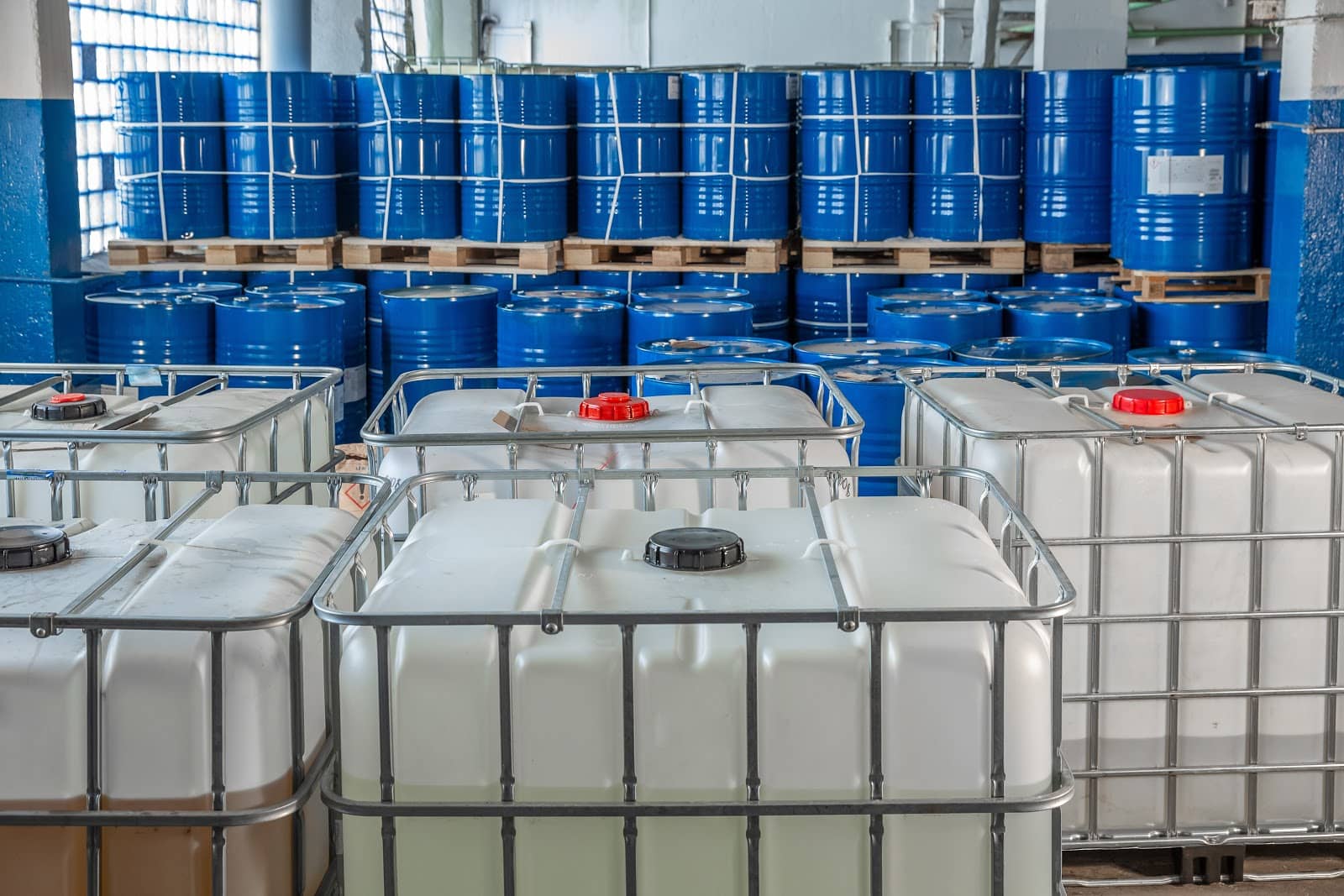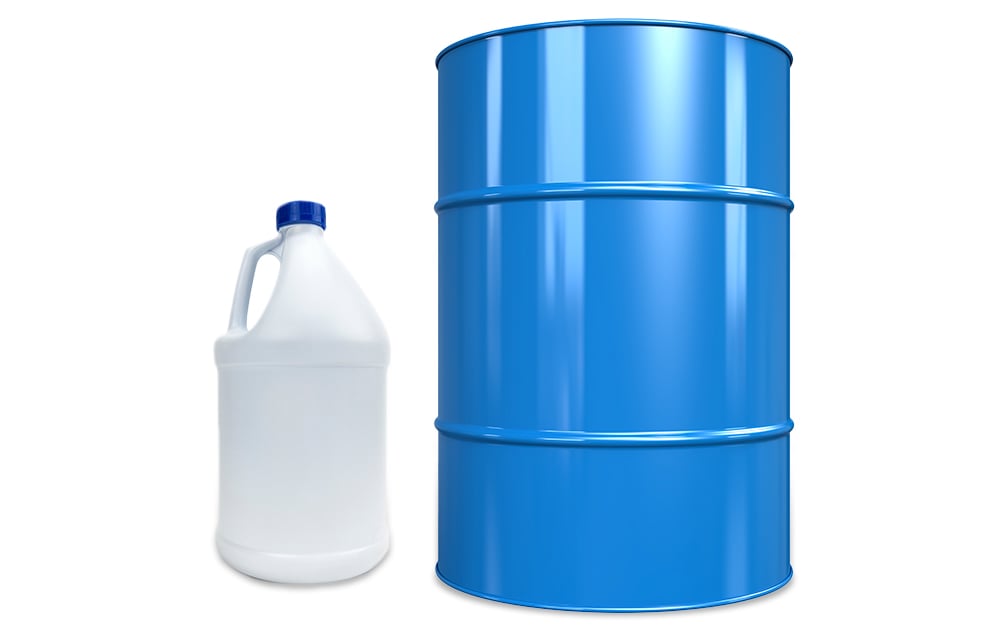
Exploring Common Liquid Chemical Packaging Options for Your Business
When packaging liquid chemicals, companies must carefully consider various factors to ensure their products are safely stored, transported, and delivered. The right packaging solution depends on the chemical's properties, the intended use, and logistical considerations like transport and storage. In this blog, we’ll explore common liquid chemical packaging options and discuss why companies may choose one solution over another.
Types of Liquid Chemical Packaging
Liquid chemical packaging comes in various forms, each suited to different types of chemicals and industries. These include:
1. Bottles and Jugs
Bottles and jugs are widely used for smaller volumes of liquid chemicals, especially in industries where chemicals are used in precise quantities. They are ideal for consumer products like cleaning agents or automotive fluids. Bottles come in a range of sizes, from 8-ounce bottles to larger jugs holding up to a gallon or more. Companies may opt for this type of packaging if they are targeting consumer markets where the end-users need easily manageable volumes. For example, a cleaning product manufacturer might package their liquid detergent in plastic bottles for direct sale in retail stores.
Why Choose Bottles?
Bottles are a great choice for retail-facing products due to their easy handling and portioning. Furthermore, various materials like PET or HDPE can be used to enhance chemical compatibility and durability. A company needing to sell their products in a format familiar to consumers would gravitate toward this solution.
2. Drums
Drums are a common choice for industrial chemical packaging, offering significantly larger capacities than bottles. They can hold anywhere from 15 gallons to over 55 gallons, making them ideal for the distribution of chemicals used in large volumes, such as solvents, lubricants, or other bulk liquids used in manufacturing. Drums come in different materials, including plastic, steel, and fiber, depending on the chemical's corrosiveness and storage needs.
Why Choose Drums?
Drums are an efficient solution for transporting bulk quantities of industrial chemicals. Their stackability and size make them suitable for industries requiring large volumes, such as manufacturing or oil and gas. A company dealing with hazardous materials might prefer steel drums for their chemical resistance and strength, ensuring safe storage and transport.
3. Intermediate Bulk Containers (IBCs)
IBCs are versatile liquid packaging solutions that can hold between 275 and 330 gallons of liquid. These containers are a common choice for transporting larger volumes of industrial chemicals, often used in sectors like food and beverage, agricultural chemicals, and cleaning products. IBCs are typically made of high-density polyethylene (HDPE) and encased in metal frames to facilitate stacking and transport.
Why Choose IBCs?
IBCs are highly efficient for large-scale chemical distribution. Companies often choose IBCs when they need to maximize volume while minimizing storage space, as these containers are stackable and reusable. The agricultural industry, for example, frequently uses IBCs for storing pesticides, herbicides, or liquid fertilizers. They offer the capacity needed for large-scale farming operations, while also being manageable with forklifts for easy movement and storage.
4. Tanker Trucks
For the largest quantities of liquid chemicals, tanker trucks are the preferred option. They are commonly used for chemicals that need to be transported over long distances or in bulk quantities that exceed what drums or IBCs can handle. Tanker trucks are often used in industries such as oil and gas or for distributing raw chemical materials to manufacturing plants.
Why Choose Tanker Trucks?
When a company needs to move vast quantities of liquid chemicals efficiently, tanker trucks provide a seamless solution. They are ideal for companies that need to transport industrial chemicals in bulk across long distances. An oil company, for instance, might use tanker trucks to distribute refined fuels to various locations across the country.
Choosing the Right Packaging for Your Business
When selecting liquid packaging solutions, businesses must consider several factors beyond the container's volume, including:
- Chemical Compatibility: Certain chemicals are reactive with specific materials. For example, highly corrosive chemicals like acids may require specialized plastic containers or stainless steel drums to prevent reactions that could compromise safety or product integrity.
- Handling and Logistics: The ease of storage and transport is another important factor. Drums and IBCs are typically stackable, making them efficient for warehouse storage, while smaller bottles and jugs are easier for consumer use. Tanker trucks, on the other hand, are a more specialized solution, typically requiring specific loading and unloading equipment.
- Regulatory Compliance: Chemicals, particularly hazardous ones, must adhere to strict packaging regulations to ensure safe handling during transit. Different industries face unique regulatory requirements. For example, the Department of Transportation (DOT) has specific guidelines for the transport of hazardous materials, making it crucial to select packaging that complies with these standards.
- Cost Efficiency: For companies managing extensive distribution, cost plays a significant role in the choice of packaging. IBCs, for example, offer an economical solution due to their larger capacity and reusable nature, whereas individual bottles or jugs might be more costly per gallon of product due to their lower volume and single-use nature.
Connecting Packaging Solutions to Your Needs
Choosing the right liquid packaging solution is key to maintaining product quality, ensuring safety, and optimizing distribution efficiency. Whether you're distributing cleaning products in consumer-friendly bottles or shipping bulk chemicals in drums and tanker trucks, it's important to partner with a packaging provider that understands your industry-specific needs.
At this point, if you're looking for a packaging provider that offers a wide array of solutions tailored to your business, consider working with a partner that specializes in chemical manufacturing and packaging. With over 80 years of experience and a network of strategic locations across the United States, Royal Chemical offers the liquid packaging solutions you need. From small-volume bottles to large-scale tanker truck shipments, they provide flexible, reliable, and compliant packaging options to meet your business goals.
Talk to one of our experts today to learn how we can support your chemical packaging needs.
By choosing the right packaging solutions, you can streamline your operations, reduce costs, and ensure the safe delivery of your products—whether they're headed to a retail store or an industrial site.
Talk to an Expert
Streamline Your Chemical Manufacturing Process
Royal Chemical’s expertise in blending, packaging and shipping can save you time, reduce costs and deliver consistent results.














